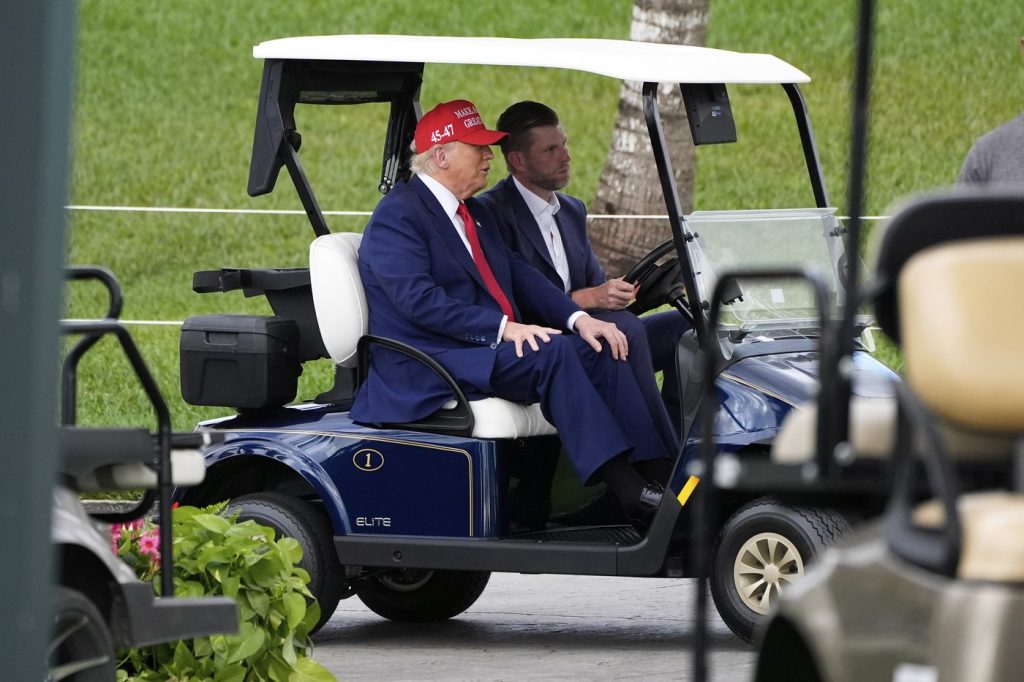OTTAWA — U.S. President Donald Trump is scheduled to arrive in Alberta on Sunday for the G7 summit, marking his first visit to Canada since a contentious departure seven years ago. In preparation for this visit, Ottawa is considering various strategies such as golfing, creative scheduling, and special cabinet orders to ensure a positive diplomatic engagement and to prevent a repeat of past diplomatic disasters.
According to Eric Miller, president of Rideau Potomac Strategy Group, it is crucial for Canadian officials to manage the visit carefully. He mentioned that Trump can become quite defensive if he feels disrespected, emphasizing the importance of leaving the summit with a favorable impression of Canada.
Better than Last Time
Trump's last visit to Canada, during the 2018 G7 summit in Charlevoix, Quebec, ended dramatically when he refused to sign the communiqué and criticized Canadian Prime Minister Justin Trudeau as “very dishonest and weak” over tariff disagreements. This confrontation was highlighted by an infamous image of Trump with crossed arms, while other leaders, including then German Chancellor Angela Merkel, appeared sternly over him.
German Ambassador to Canada Matthias Lüttenberg remarked on the challenging circumstances Ottawa faces in its role as G7 chair, alluding to the complexities in negotiating with a nation that questions its sovereignty. Additionally, Senator Peter Boehm, who led the 2018 summit, recalled exhausting negotiations that reflected the Trump administration's divergence on key issues such as climate change and the international rules-based order.
Informal Talks
New Prime Minister Mark Carney, who took office in April, had previously stated his willingness to confront Trump’s threats to the Canadian economy. Carney's early visit to Washington led to praise from Trump, despite the continuation of claims suggesting Canada should become a U.S. state. Their communication has remained active, with U.S. Ambassador Pete Hoekstra noting frequent exchanges between the two leaders regarding trade and tariffs.
Miller suggested that face-to-face discussions between Trump and Carney could facilitate progress on economic concerns, including proposals for Canada’s participation in Trump’s Golden Dome missile shield initiative. Miller pointed out that informal settings for these discussions could be beneficial, as Trump often prefers less structured meetings to concentrated multilateral formats.
Miller also indicated that formal announcements might be limited, although there is a possibility Trump may seek to sign agreements with various countries before enforcing his self-imposed July 9 deadline regarding retaliatory tariffs. Furthermore, both nations may celebrate increased Canadian commitments to NATO defense spending targets.
Lower Expectations
To mitigate potential setbacks, Canadian officials have decided to implement relatively short group discussions among G7 leaders while also inviting a range of world leaders to coincide with one-on-one meetings, a format that appeals more to Trump. A strategy of shorter, focused statements is expected to replace major joint communiqués to prevent any explosive disagreements.
Former Prime Minister Jean Chretien advised that if Trump does become agitated, G7 leaders should maintain composure and continue discussions as normal to avoid escalation.
Miller noted the balancing act that Carney must perform: reassuring the U.S. of a positive bilateral relationship while simultaneously forging new partnerships with other nations in attendance.
Given Trump’s legal challenges stemming from his conviction on multiple criminal counts in a hush money case, there is speculation that Ottawa might circumvent rules prohibiting his entry into Canada. An order was passed to grant diplomatic immunity to foreign representatives attending the G7.
Fore!
Moreover, a potential strategy for a successful visit could involve Trump playing golf at Kananaskis Country Golf Course, a prospect widely discussed in the media. Miller suggested that golfing could provide ample opportunities for informal discussions, given Trump's affinity for making deals during such outings. He indicated that leveraging golf could foster a more relaxed atmosphere and facilitate productive interactions between Trump and Canadian officials.
This report sheds light on the intricacies of the Canadian government's approach to managing Trump's visit at the G7 summit, reflecting on past experiences while striving to create a positive environment for diplomatic relations.











